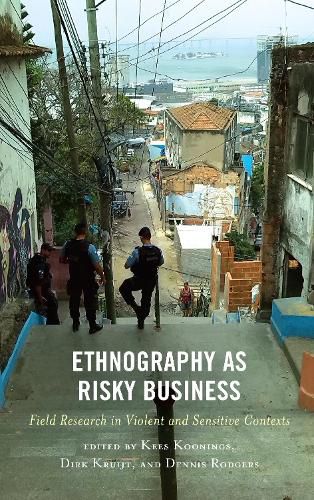Readings Newsletter
Become a Readings Member to make your shopping experience even easier.
Sign in or sign up for free!
You’re not far away from qualifying for FREE standard shipping within Australia
You’ve qualified for FREE standard shipping within Australia
The cart is loading…






Ethnography as Risky Business: Field Research in Violent and Sensitive Contexts offers a hands-on, critical appraisal of how to approach ethnographic fieldwork on socio-political conflict and collective violence, focusing on the global south. The volume’s contributions are all based on extensive firsthand qualitative social science research conducted in sensitive–and often hazardous–field settings. The contributors reflect on real-life methodological problems as well as the ethical and personal challenges such as the protection of participants, research data and the ‘ethnographic self’. In particular, the authors highlight how ‘risky ethnography’ requires careful maneuvering before, during, and after fieldwork on the basis of a ‘situated’ ethics, yet also point to the rewards of such an endeavor. If these methodological, ethical and personal risks are managed adequately, the yields in terms of generating a deep understanding of, and critical engagement with, conflict and violence may be substantial.
$9.00 standard shipping within Australia
FREE standard shipping within Australia for orders over $100.00
Express & International shipping calculated at checkout
Ethnography as Risky Business: Field Research in Violent and Sensitive Contexts offers a hands-on, critical appraisal of how to approach ethnographic fieldwork on socio-political conflict and collective violence, focusing on the global south. The volume’s contributions are all based on extensive firsthand qualitative social science research conducted in sensitive–and often hazardous–field settings. The contributors reflect on real-life methodological problems as well as the ethical and personal challenges such as the protection of participants, research data and the ‘ethnographic self’. In particular, the authors highlight how ‘risky ethnography’ requires careful maneuvering before, during, and after fieldwork on the basis of a ‘situated’ ethics, yet also point to the rewards of such an endeavor. If these methodological, ethical and personal risks are managed adequately, the yields in terms of generating a deep understanding of, and critical engagement with, conflict and violence may be substantial.